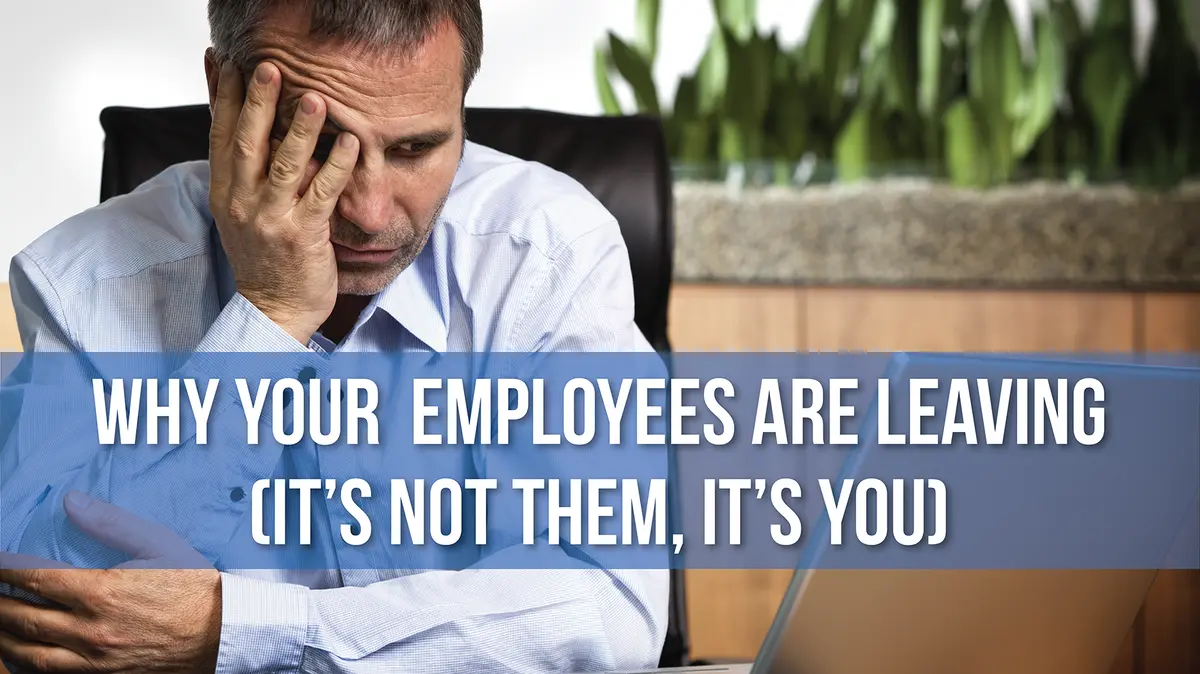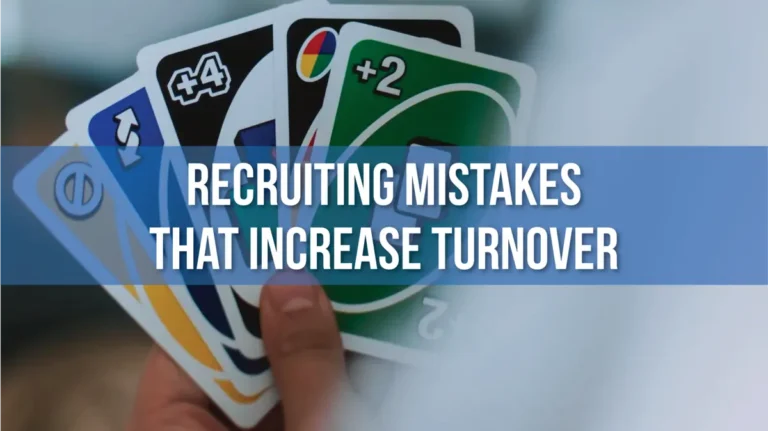Why Your Best Employees are Leaving
It’s not them, it’s You…
Nothing is more shocking than one of your top performers leaving, particularly if they seemed to enjoy their role. On top of replacing that employee, your company has to find, hire and train their replacement.
Before recruiting their replacement, you need to determine why they resigned – especially if it took you by surprise. Knowing why they left may help you prevent others from leaving.
Let’s dive into controllable factors that lead employees to choose to resign:
Unnecessary Rules
Does your employee handbook have unrealistic attendance, dress code and scheduling policies? While rules are important to have, excessive ones are a great way to put off your team members, especially in today’s trend of more casual workplaces.
Not Basing Incentives on Performance
Suppose a hard-working employee goes the extra mile on a project, but then receives the same reward as a lazy employee who barely met standards. What’s the incentive for the hard-working employee to continue working hard?
Not Offering Opportunities for Growth
Can you imagine doing the same work for your entire career? We can’t either. Employees want growth opportunities that allow them to continue learning and developing skills. Not offering opportunities for growth will demotivate your employees.
Overwork
When managers see an employee working hard, asking them to take on more makes sense. They may appreciate the opportunity, but be mindful of their workload and keep it manageable. Rather than overworking a high-performing employee, delegate lesser tasks to others and save the most important or most challenging projects for your top performers.
Employees treated with appreciation and respect are more likely to stick around – you’ve earned their loyalty. It’s more cost-effective to create a desirable work environment and provide opportunities for your existing workforce than it is to find replacements for the great employees you lost.








